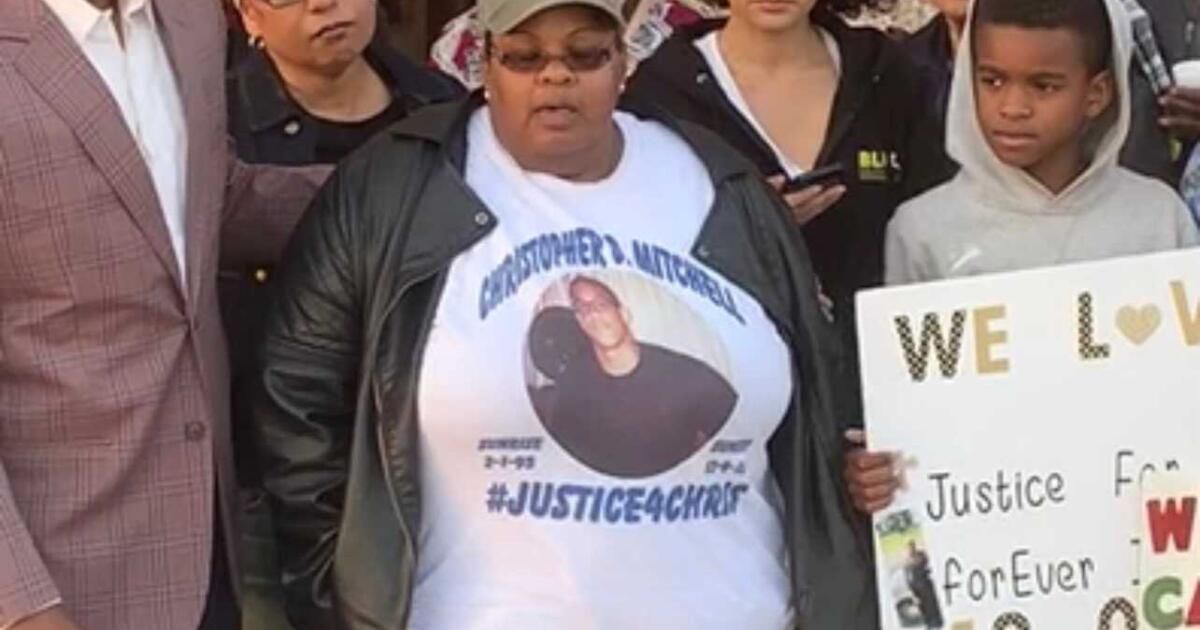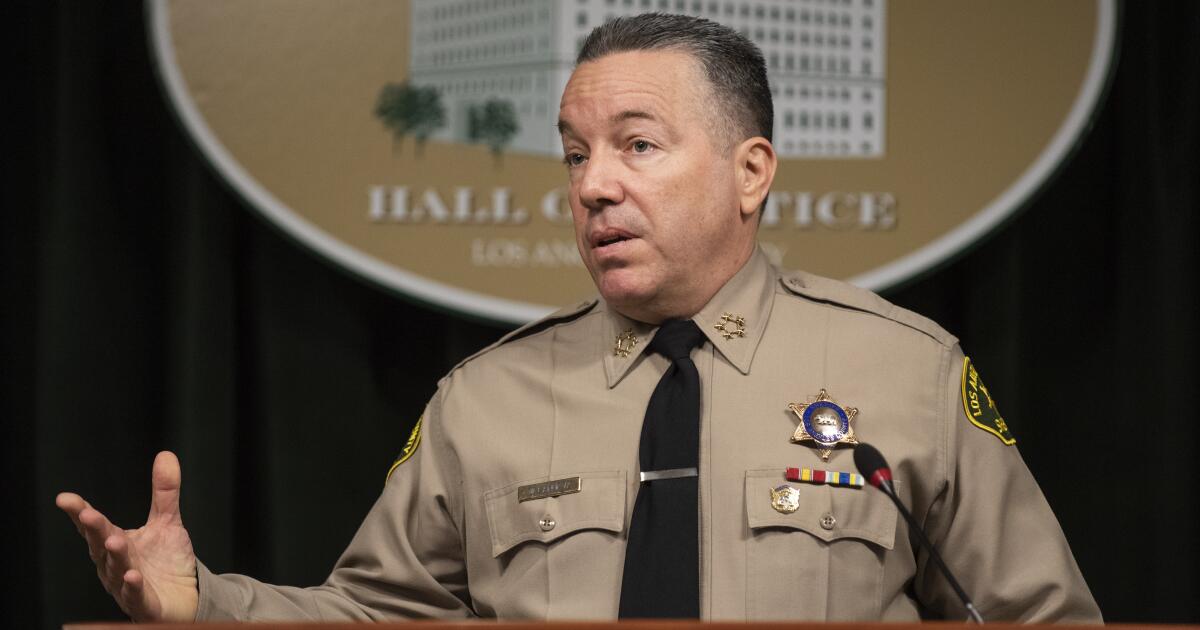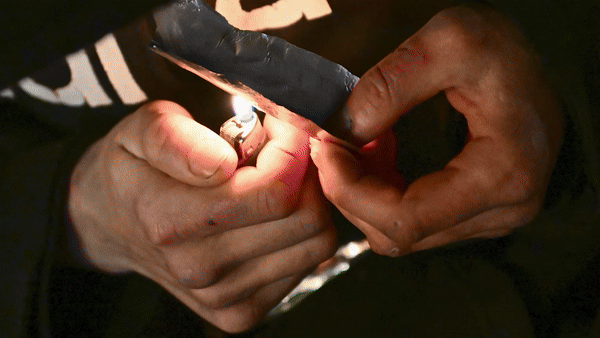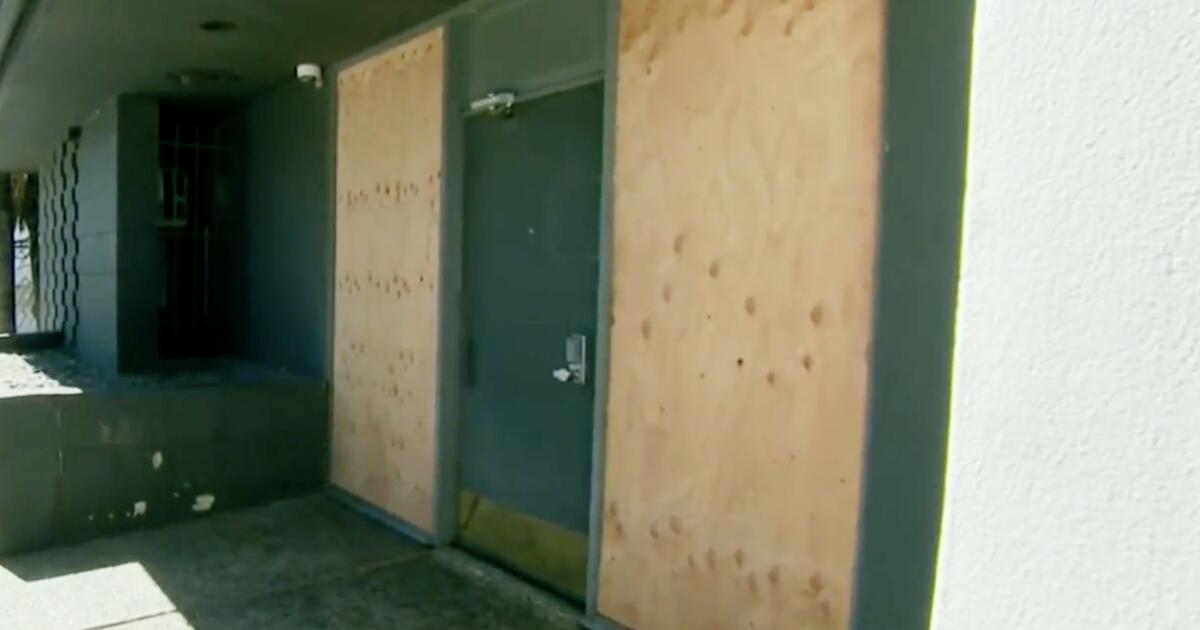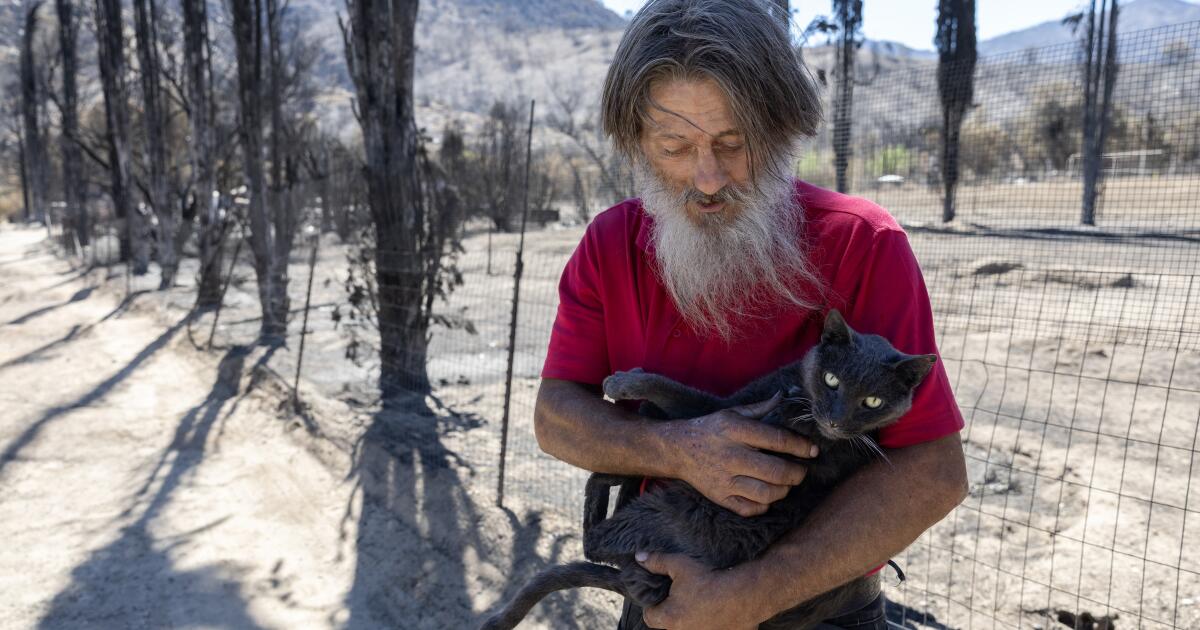A Los Angeles Superior Court judge on Friday rejected a defense effort to dismiss a manslaughter charge against two former Torrance police officers in the 2018 shooting death of a young black man sitting in a suspected stolen car with an air rifle.
Judge Sam Ohta declined to dismiss the March 2023 indictment against Matthew Concannon and Anthony Chavez on one count each of voluntary manslaughter in the fatal shooting of 23-year-old Christopher Deandre Mitchell.
The 36-page decision came after more than a year of arguments in the only case brought by a special prosecutor, Lawrence Middleton, who was hired by District Attorney George Gascón to review police shootings that his predecessor had declined to prosecute.
On December 9, 2018, Concannon and Chavez, responding to reports of a man driving a stolen vehicle, encountered Mitchell in the Ralph's parking lot in Torrance. They cornered the car with their own and, without calling for backup or waiting for other officers, approached the vehicle. Concannon's body camera showed him opening the driver's door when they reached the car.
Officers initially told Mitchell, “Don't move, don't move,” and then repeatedly ordered him to get out of the car, but he did not comply, body camera video showed.
Concannon said in police reports that as he and his partner approached, they noticed Mitchell's hands move to his lap and saw what he believed to be a firearm.
Both officers shot Mitchell at point-blank range, killing him.
The couple described the gun they had seen (later determined to be a “flip-up air rifle”) as being “crammed” between Mitchell’s legs, according to a report from the district attorney’s office. It can be seen on body camera video as Concannon shines his flashlight at Mitchell’s body.
Ohta said he disagreed with Chavez's attorneys' argument that there was no probable cause to charge, noting that Middleton had presented evidence to the grand jury that Chavez shot Mitchell as a result of “contagious fire.”
The judge said factual disputes over the evidence were not for him to determine, as that was the role of the grand jury.
“People presented sufficient evidence for the grand jury to conclude with a strong suspicion that defendant Chavez participated in a contagious fire,” he said.
Christopher Deandre Mitchell was 23 years old when he was fatally shot by Torrance police.
(Courtesy of Peter Carr)
Ohta also rejected the defense's argument that the special prosecutor had based his entire case on the danger created by the officers — the perception that the two officers used poor tactics that created the situation that led to the shooting. California did not enact a law requiring such circumstances until after the shooting, and the law could not be applied retroactively, defense attorneys argued.
But Ohta said this “irrelevant evidence” constituted only one part of the grand jury presentation and that Middleton focused primarily on the interaction between the officers and Mitchell, while “the majority of the closing statement focused on relevant and material evidence.”
Chavez and Concannon have been temporarily suspended by the California Peace Officer Standards and Training Commission, meaning they cannot work as police officers.
Both were linked to a bigotry scandal within the Torrance Police Department after an investigation revealed that approximately 15 officers had sent approximately 390 racist, sexist or homophobic text messages between 2018 and 2020.
Although The Times never found evidence that Concannon or Chavez had sent any of the messages, both were among those investigated in the scandal, according to documents previously reviewed by the newspaper and sources who spoke on condition of anonymity.
After his ruling, Ohta informed defense attorneys that they could file an appeal, a process that would likely delay trial proceedings.
The legal dispute is the latest following the killing of Mitchell, whose death sparked protests by the Los Angeles chapter of Black Lives Matter.
Former District Attorney Jackie Lacey became the subject of protests after her attorneys decided in 2019 not to prosecute Concannon and Chavez. The case became one of four that special prosecutor Middleton reopened after being hired by Gascón, who was elected in 2020 as Lacey’s successor. However, the case has become Middleton’s only prosecution, despite the county spending hundreds of thousands of dollars on her services.
Announcing the indictment of Concannon and Chavez in 2023, Gascón questioned “whether the officers were able to see the gun before the shooting.”
Both officers have pleaded not guilty to the charges, saying they saw Mitchell reach for a gun that was between his legs. Concannon and Chavez remain free on bail and each face up to 11 years in prison if convicted.
The officers' attorneys have insisted Lacey did the right thing when his office deemed the shooting legal.
“Considering Mitchell’s failure to follow the officers’ instructions, his continued efforts to conceal the object in his lap, the physical appearance of the object, and the movement of his hands toward the object, it was reasonable for the officers to believe the object was a firearm and respond with deadly force,” prosecutors wrote in 2019.
But in a grand jury presentation, Middleton argued that the officers' tactics made the shooting “inevitable,” saying they did not call for backup, did not wait for other officers, approached the car without any cover and had not seen the air gun before opening fire.
In seeking to dismiss the charge, defense attorneys pointed to the Supreme Court's ruling that deadly force is permitted if a reasonable officer in the same situation would conclude there was a threat to life or great bodily harm.
Chavez's attorney, Tom Yu, and Concannon's attorney, Lisa Houlé, also alleged there were procedural violations with exculpatory evidence, including failing to show grand jurors enhanced video of the air gun in Mitchell's lap.
Ohta said he saw no difference at the key moment in the enhanced video, and that other evidence the defense believed should have been presented would not have changed the decision to charge.
Defense attorneys said the “whole process is outrageous.”
“These officers were cleared of any wrongdoing in 2019,” said Houlé and co-counsel Matt Murphy. “You cannot remedy past injustices by creating new ones, which is exactly what George Gascón is doing here.”

